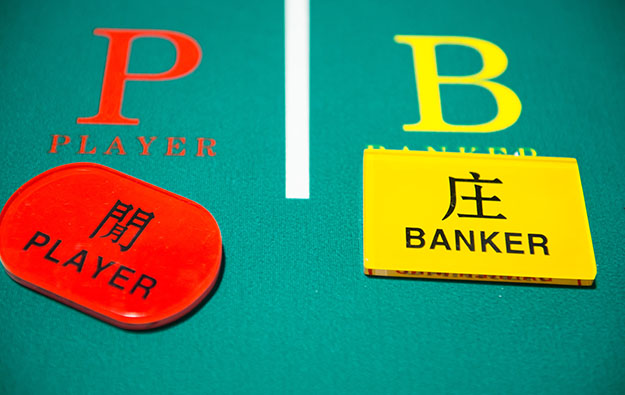New casinos in ASEAN a risk to Singapore: JP Morgan
Jul 03, 2019 Newsdesk Japan, Latest News, Macau, Singapore, Top of the deck

New, high-quality casino resorts in the Philippines and Cambodia are more likely to be a commercial threat to Singapore’s casino duopoly than to Macau’s six-operator oligopoly. That is the suggestion of a 99-page report from banking group JP Morgan Chase and Co, citing proprietary research and publicly-available sources of data.
“Chinese nationals drive the largest share of gaming demand in Asia, especially VIP demand. Thus proximity to China and leveraging marketers (junkets) becomes important,” said the document, prepared by five JP Morgan analysts that cover variously the Singapore, Macau, Malaysia and Philippines consumer markets.
Singapore’s disadvantages included its regulatory environment, and greater travelling distance from key feeder markets on the Chinese mainland, suggested the authors.
It is however precisely the level of social safeguards in Singapore against problem gambling – and other social ills that have been associated with hosting a casino industry – that has attracted Japanese lawmakers and other decision-makers to adopt what they term the “Singapore model” in developing Japan’s fledgling casino industry.
JP Morgan said in its report: “Over the past five years, we have seen only a 1.6-percentage points [pps] shift in overall Chinese gaming spends, away from Macau and in favour of other markets.”
The authors added: “Macau still drives almost 92 percent of total gaming spends by Chinese nationals.”
Referring to the Association of Southeast Asian Nations (ASEAN), a regional club of nation states, and to consumer casino gambling spend at venues within the bloc, the researchers stated: “The gains in ASEAN have been in favour of the Philippines (1.1pps) and Cambodia (1.5pps), while Singapore has lost 1.7pps of the share of Chinese gaming expenditure.”
“Manila (and the Philippines) is almost equally attractive economically for many Chinese travellers versus Hong Kong/Macau,” the authors added.
The Philippines might also appeal to Chinese gamblers that want to “avoid being seen in Macau due to increased government oversight”, suggested JP Morgan.
Referring to gross gaming revenue (GGR), a measure of casino industry performance, JP Morgan stated: “Given the much larger size of the Macau market versus Singapore (8 times), incremental shifts in Chinese demand are expected to have larger effects on Singapore versus Macau”
The authors further noted of Singapore’s next-door neighbour to the north, which has a monopoly casino operation, Resorts World Genting, run by Genting Malaysia Bhd: “Malaysian regulations are less cumbersome, but local Muslims (61 percent of the population) are restricted to enter casinos and recent tax hikes increase risks of further taxation, highlighting the government’s relatively less favourable view on the sector.”
The analysts added referring first to mass-market gamblers: “Apart from mass, even within VIP, regional casinos’ direct outreach to gamers – as product quality improves – would affect Singapore negatively.”
GGRAsia reported this week that major Macau junket firm Suncity Group currently had nearly half its 31 VIP gambling clubs outside the Macau market, in other parts of the Asia-Pacific region.
Singapore does not permit Macau-style junkets, albeit that in Macau such promoters are licensed by the Macau government. Singapore only permits the use of third-party promoters that are licensed under its stringent international market agent framework. It has been widely anticipated by industry observers that Japan also will not permit Macau-style junkets.
Related articles
-
 Donaco EBITDA up y-o-y to above US$4mln...
Donaco EBITDA up y-o-y to above US$4mln...Jul 26, 2024
-
 Cambodia PM imposes ban on new casinos...
Cambodia PM imposes ban on new casinos...Jul 24, 2024
More news
-
 HK listed Palasino upgrades Czech...
HK listed Palasino upgrades Czech...Jul 26, 2024
-
 China embassy in Manila welcomes POGO...
China embassy in Manila welcomes POGO...Jul 26, 2024
Latest News
Jul 26, 2024
Border-casino operator Donaco International Ltd has achieved a 164.17-percent year-on-year increase in its latest quarterly group earnings before interest, taxation, depreciation and amortisation...Sign up to our FREE Newsletter
 (Click here for more)
(Click here for more)
Pick of the Day
”We’ve got more traction outside of Macau at the moment. But Macau’s going be a bigger focus for us”
David Punter
Regional representative at Konami Australia
Most Popular
 Sheraton brand to exit Londoner Macao, to be Londoner Grand July 25, 2024
Sheraton brand to exit Londoner Macao, to be Londoner Grand July 25, 2024  Macau regulator probes unlicensed gaming agents July 24, 2024
Macau regulator probes unlicensed gaming agents July 24, 2024  Philippines gives 20k aliens in POGOs 60 days to leave July 25, 2024
Philippines gives 20k aliens in POGOs 60 days to leave July 25, 2024  Philippines-listed DigiPlus says not affected by POGO ban July 24, 2024
Philippines-listed DigiPlus says not affected by POGO ban July 24, 2024  Sands China 2Q EBITDA down q-o-q amid low hold, renovation July 25, 2024
Sands China 2Q EBITDA down q-o-q amid low hold, renovation July 25, 2024





